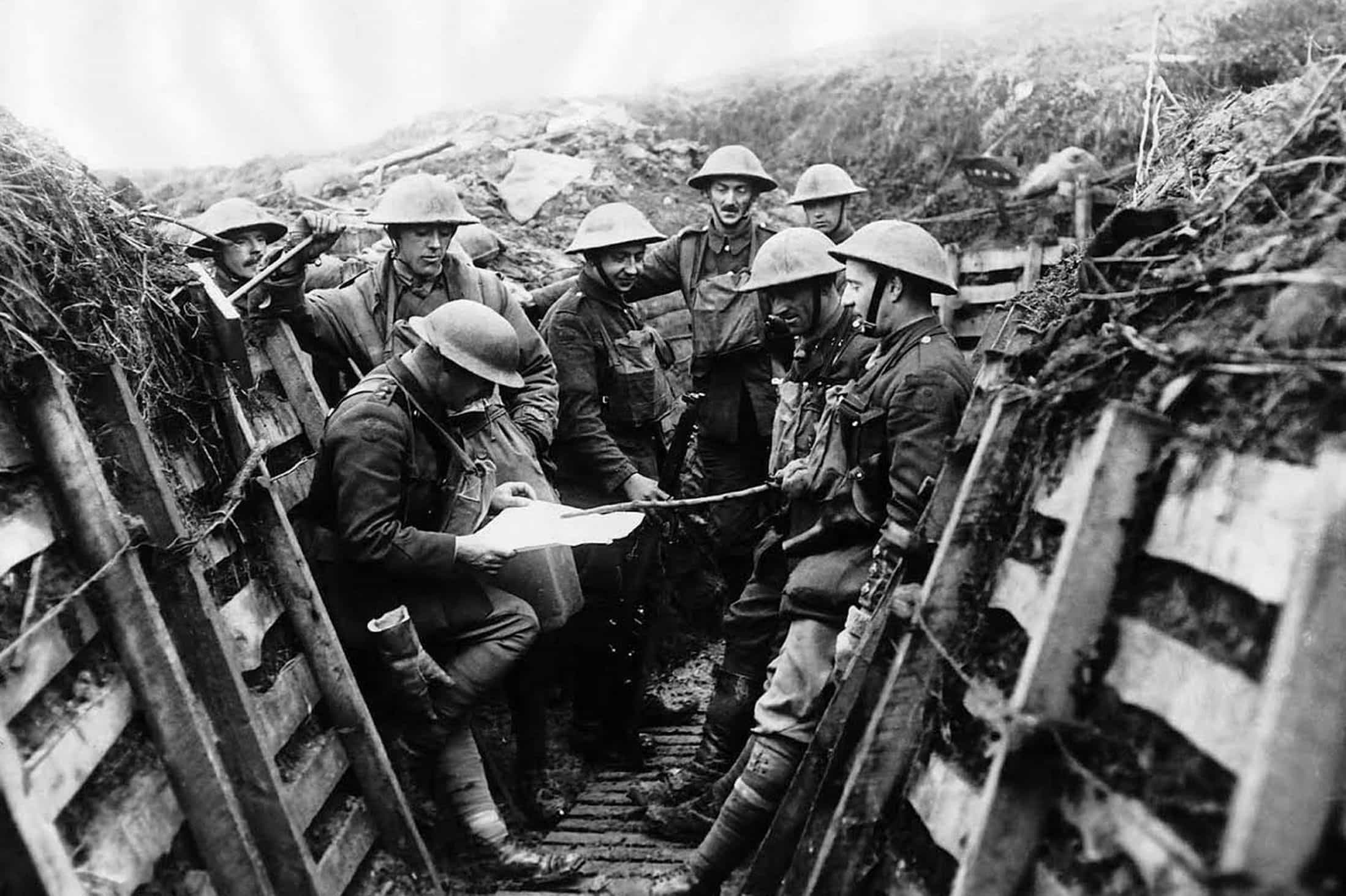 When I was about nine years old, I had the privilege of meeting an American veteran of World War I. I’m not sure I realized then what a privilege that was, but I think I knew it was quite unusual. This would have been the late seventies, there were plenty of Second World War veterans about, hitting their upper middle ages around then, but I believe I was aware that this elderly gentleman visiting our fourth-grade class was the only I’d met who’d lived through that first Great War. I doubt I would have foreseen this, but as it happened, he was to be the only such veteran I’d ever speak with.
When I was about nine years old, I had the privilege of meeting an American veteran of World War I. I’m not sure I realized then what a privilege that was, but I think I knew it was quite unusual. This would have been the late seventies, there were plenty of Second World War veterans about, hitting their upper middle ages around then, but I believe I was aware that this elderly gentleman visiting our fourth-grade class was the only I’d met who’d lived through that first Great War. I doubt I would have foreseen this, but as it happened, he was to be the only such veteran I’d ever speak with.
And now all of them—every last first-hand witness to that epochal conflict—are gone.
Today is November 11th—the day we in the U.S. celebrate as Veterans Day. But it’s important to remember that the holiday was originally known as Armistice Day, and it commemorated the day that the Guns of August, as Barbara Tuchman called them, went silent.
A century on, with no living witnesses to the horrors of 1914-1918, it falls to us, to all of us, to remember that war, its victims and its causes and its aftermath, because there are lessons to be learned there and I fear they’re more critical now than ever.
It’s remembered as, among other things, the first modern war. It saw the first large-scale use of tanks, airplanes, and machine guns—all the more amazing when you consider it was barely a century removed from the Napoleonic Wars. And then there was the gas—seen as a solution to the stalemate of trench warfare, all sides resorted to poisonous gas. It’s been said that where WWII was won by physicists, WWI was won by chemists—except it won nothing, it just killed and blinded and maimed. It was so horrific that throughout World War II, despite all other excesses and despite all sides stockpiling chemical weapons, none deployed them on the battlefield. That would be a lesson, then, that was once learned but too soon forgot.
Perhaps most striking, in the face of all that hostile modernity, is the decidedly 19th-century fashion in which the war began. Tuchman’s book and others detail it much better than I can, but one envisions a continent-wide maze of diplomatic tripwires, set by bewhiskered old men, almost all of whom, it seems, were related in some way to each other and to Queen Victoria, no matter which side of the conflict they were on. The assassination of Archduke Franz Ferdinand in Serbia was almost irrelevant—if that hadn’t been the trigger, something else would have been. It was inevitable. Once one side began mobilizing, the other was obliged to. Alliances were activated, war plans initiated, and the thing took on an unstoppable trajectory of its own.
What followed was four years of hell. It often gets overshadowed by the even more horrific world war that came after, but there’s a strong argument to be made that both were, in fact, a single protracted war, with a 20-year hiatus in the middle. Regardless, both after November 11th 1918 and after 1945 the world changed. Maps were redrawn, treaties signed, empires and cultures and class structures reshuffled. After both wars solemn ‘never again’ vows were made. It’s tempting to look around, to war-torn regions like Africa and the Middle East and to see folly in those vows, but that might be hasty. Our wars since the mid-20th century have been awful, but they have been (to reluctantly use an inappropriate adjective) limited. We do seem to have learned a lesson—we do seem averse to reliving that wrenching past.
But now World War I is a century behind us. In a generation World War II will be equally distant. Will we forget?
That’s the danger, and the only solution I can see is to keep telling these stories and to keep reliving that past. They should never be far from our consciousness, but on days like today, the consequential anniversaries, we should strive to think of little else. As I said, we in the USA have chosen to transform the 11th of November into an annual recognition of our armed-forces veterans, and that’s well and good. They have earned our thanks and recognition. But November 11th 2018 is unique—it’s the hundred-year anniversary of the end of the War to End All Wars. Just for today, let’s focus on that.